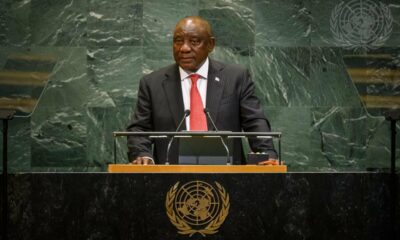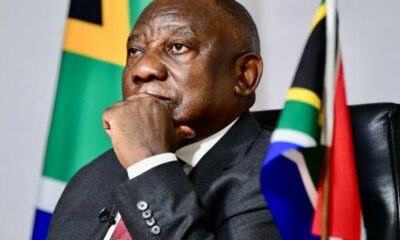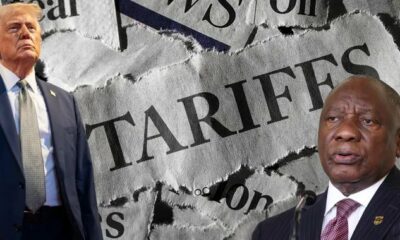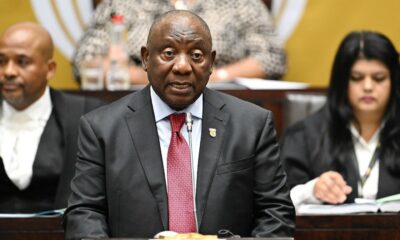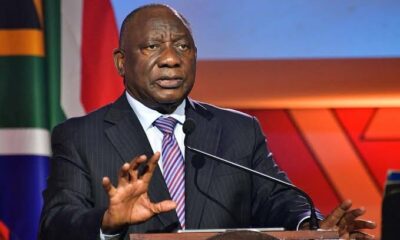Business
South Africa’s Trade Dynamics: A Surplus with the U.S. and a Deficit with Russia, Iran, and Palestine
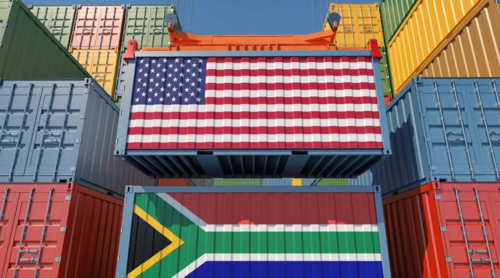
South Africa’s economic relationship with global powers, particularly the United States, Russia, Iran, and Palestine, has raised significant discussion among economists and policymakers. As of 2024, the country enjoys a considerable trade surplus with the United States, while grappling with a trade deficit when dealing with Russia, Iran, and Palestine. This trade imbalance, valued at R36 billion in favor of the United States, has profound implications for South Africa’s economic stability and foreign policy decisions.
The Economic Impact of Trade with the United States
Trade between South Africa and the United States is crucial for the country’s economy. In 2024, South Africa exported goods worth R157 billion to the U.S., including precious metals and vehicles. On the flip side, imports from the U.S. amounted to R120 billion, covering machinery, vehicles, and aircraft. This results in a significant trade surplus of R36 billion, underlining the economic importance of the relationship.
Such a surplus is vital for South Africa, especially considering the thousands of jobs tied to exports facilitated under the African Growth and Opportunity Act (AGOA). AGOA provides quota-free, duty-free access to the U.S. market for eligible countries, and South Africa benefits greatly from this trade agreement. In fact, over 22% of South Africa’s exports to the U.S. come under AGOA, making it an economic lifeline for many South Africans.
The Deficit with Russia, Iran, and Palestine
In stark contrast, South Africa’s trade relations with Russia, Iran, and Palestine reflect a much smaller economic footprint. In 2024, exports to Russia were valued at only R5.4 billion, with Iran and Palestine seeing even less. South Africa’s imports from these countries, primarily machinery and mineral products, were also much smaller, leading to a trade deficit of R4.5 billion.
This deficit is largely driven by the trade imbalance with Russia, which accounted for nearly R4.8 billion of the deficit. Despite political and military alliances with Russia, Iran, and Palestine, South Africa’s economic exchange with these countries remains relatively insignificant compared to its dealings with the U.S.
The Diplomatic and Economic Dilemma
The trade data clearly shows that South Africa benefits far more from its relationship with the United States than from its connections with Russia, Iran, and Palestine. Economists such as Dawie Roodt argue that South Africa’s government must be mindful of these economic realities when navigating international diplomacy.
With the U.S. imposing political pressure and even economic sanctions on countries with which it disagrees, South Africa risks losing the advantages of its trade surplus and AGOA benefits if it continues to antagonize the U.S. over its foreign policy choices, particularly in relation to Israel, Iran, and Russia.
Balancing Trade and Diplomacy
The challenge for South Africa is clear: it must balance its international relationships while safeguarding its economic interests. Economic experts advise that South Africa take a more neutral stance in global politics, avoiding actions that could jeopardize its crucial trade relationship with the United States.
For South Africa, the key to future prosperity lies in carefully managing its international relationships, ensuring that the trade surplus with the United States remains intact, while addressing the diplomatic challenges posed by its alliances with Russia, Iran, and Palestine.
Trade Data Overview
The table below illustrates the trade figures between South Africa and the United States, Russia, Iran, and Palestine:
| Country | United States | Russia | Iran | Palestine |
|---|---|---|---|---|
| Exports | R157 billion | R5 billion | R0.36 billion | R0 billion |
| Imports | R120 billion | R10 billion | R0.07 billion | R0 billion |
| Trade Surplus/Deficit | R36 billion | -R4.8 billion | R0.29 billion | R0 billion |
This data underscores the contrast in South Africa’s economic engagements with these countries and highlights the potential risks associated with straining ties with the United States. Maintaining a healthy trade balance with the U.S. is crucial for South Africa’s economic well-being.
Follow Joburg ETC on Facebook, Twitter , TikTok and Instagram
For more News in Johannesburg, visit joburgetc.com

